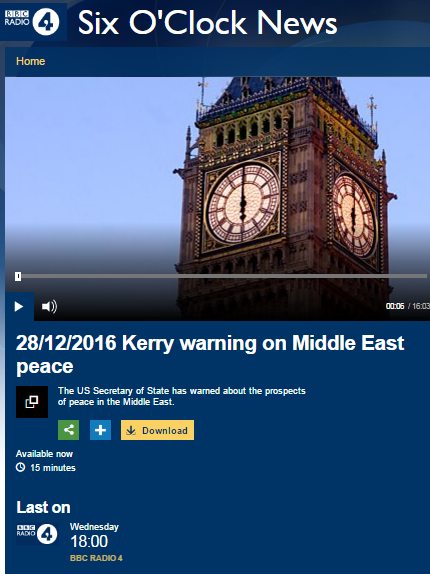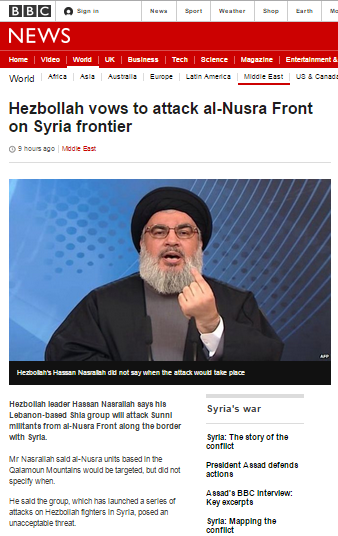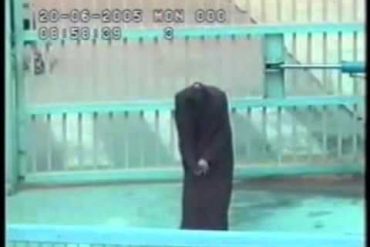One might have assumed that events in the Middle East over the past six years would have brought the BBC to the understanding that a solution to the Arab-Israeli conflict is not the panacea to all that region’s problems.
That, apparently, is still not the case – as a BBC news readers’ introduction to the top of the bill item on the December 28th edition of BBC Radio 4’s Six O’clock News (from 03:15 here) demonstrates. [emphasis added]
“The American Secretary of State, John Kerry, has warned that hopes for peace in the Middle East are being destroyed with events on the ground putting prospects for a viable two-state solution in jeopardy. In a speech which he described as his candid thoughts, Mr Kerry said the need to preserve what he called the only just way to peace had prompted the US to abstain on Friday’s UN resolution which condemned Israeli settlement expansion.”
As has been the case in previous BBC reporting both on that UNSC resolution and on the topic in general, that choice of terminology obviously leads BBC audiences to mistakenly believe that Israel is constructing new communities rather than – as is actually the case – building homes in existing neighbourhoods, towns and villages.
Listeners to that news bulletin later heard from the BBC’s diplomatic correspondent Paul Adams who managed to make both the Palestinian Authority and the Hamas regime in the Gaza Strip disappear from the story.
“Eight years ago Barak Obama began his presidency with a flurry of diplomacy aimed at breaking the Arab-Israeli deadlock. It didn’t work and pretty soon a succession of Arab revolutions and wars gave the president more pressing things to think about. But now at the eleventh hour: another flurry. First a highly unusual abstention on a UN Security Council resolution condemning Israeli settlements in the occupied territories and now a speech the president’s tireless Secretary of State has apparently been wanting to give for some time. It contained warnings to both sides but asked one fundamental question of Israel: did it want two separate states living side by side or one – in which Israel continues to govern the lives of millions of Palestinians.”
The Palestinian Authority governed the Gaza Strip after Israel’s disengagement in 2005 and it has been governed by the Hamas regime since its violent take-over of the territory two years later. The vast majority of Palestinians in Judea & Samaria live in Areas A and B and have been governed by the Palestinian Authority for over two decades. The number of Palestinians living in Area C (which, under the terms of the Oslo Accords is under Israeli control) and in Jerusalem does not even approach the one million mark. Paul Adams’ rhetoric obviously fails to help BBC audiences to come any closer to understanding this particular “international issue”.
Related Articles:
Reviewing BBC coverage of UNSC resolution 2334 in R4 news bulletins – part one




